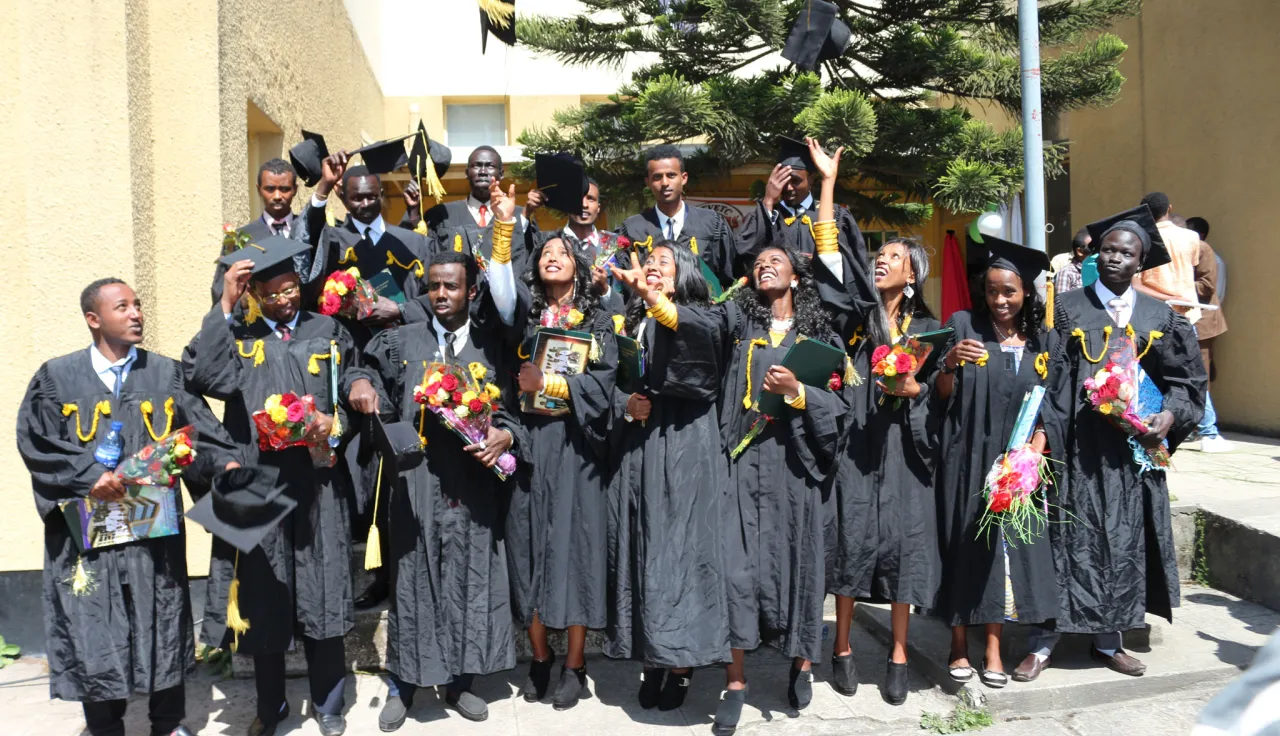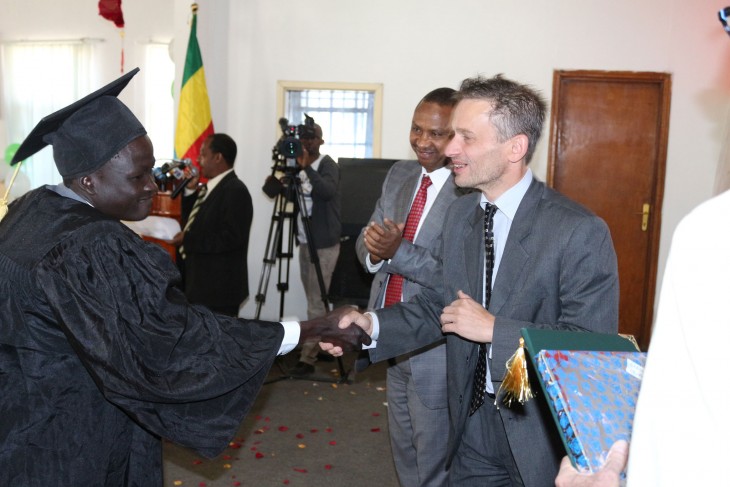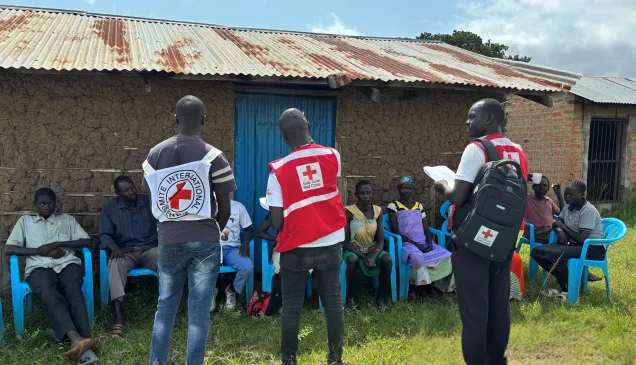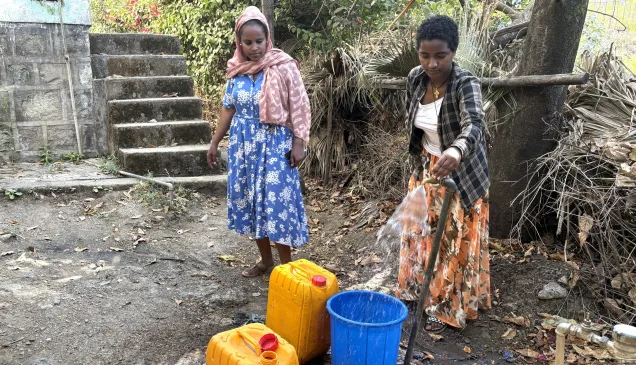Ethiopia: Training future orthopaedic and physical rehabilitation experts

Fifteen students from across Ethiopia celebrated their graduation from a three-year programme at the Orthopaedic Vocational and Educational Training College (OTVETC) in Addis Ababa earlier this month. This training was launched six years ago by the International Committee of the Red Cross (ICRC) in Ethiopia, in close cooperation with Ethiopia's Ministry of Labor and Social Affairs, which co-hosted the ceremony. The successful graduates have acquired practical skills in prosthetic and orthotic technology and are now capable to produce customized devices and products for people with disabilities.
Bahiru Negade is one of the graduates. His uncle lost one leg during the war with Sudan: "My uncle was so ashamed after he lost his leg that he was even scared to come back to the family. This experience has touched me a lot and I have seen how important it is for people with disabilities to regain their self-respect." Bahiru said this experience is what motivated him to become a professional orthopaedic and prosthetic technician. Thanks to this training, he says he will now be able to help people who are suffering.

Bahiru Negade poses for a photo during the graduation. His motivation to take up the orthopaedic profession came after his uncle lost a leg. CC BY-NC-ND / ICRC / Alemayehu Takele
Ato Aschalew Tasew, the head of Assala Physical Rehabilitation Centre since 2010, explains that his centre has employed three graduates so far and that the region of Oromia has benefited from seven graduates. He thinks the programme's ethical dimension is valuable. "It is not enough for the students to acquire technical skills, they have to be prepared to serve people in need by showing compassion and empathy," he said. Moreover, thanks to the graduates who were employed in his centre, Ato Aschalew Tasew was able to increase the production of orthopaedic and prosthetic devices in his centre from 84 to 147 per month.
Remedan Ashenafi, State Minister of the Ministry of Labour Social Affairs (MoLSA), said the graduates have gained important theoretical and practical skills through the training that can help them not only to deliver services but also carry out research in the field that will benefit persons with disabilities.
The head of the ICRC delegation in Ethiopia, James Reynolds, thanked all partners for the work accomplished and indicated his hope that the achievement of the OTVETC programme would be reinforced and continued with the introduction of the new Bachelor of Science course.

A graduate receives his diploma and shakes the hand of James Reynolds, head of the ICRC delegation in Ethiopia. CC BY-NC-ND / ICRC / Alemayehu Takele
Since 1979 and in close cooperation with MoLSA and Ethiopian institutions, the ICRC has supported the development of physical rehabilitation services in different capacities of training, service provision and technical mentorship across the country. These programmes have run in close collaboration with Ethiopian staff to provide people with disabilities with appropriate devices enabling them to fully participate as members of their society and communities. In 2016, 4,653 persons have benefited from physical rehabilitation services provided through the help of ICRC-trained orthopaedic professionals serving in the country's physical rehabilitation centers.



